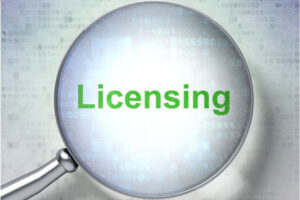The Executive Council of Physical Therapy and Occupational Therapy Examiners (PTOTE) licenses and regulates physical and occupational therapists for compliance with applicable rules and regulations. As a result of these duties, TDLR receives complaints based on alleged violations of these rules. If sufficient evidence of a violation exists under state law, PTOTE can bring formal enforcement action against a physical or occupational therapist.
Obtaining experienced legal counsel to represent your interests in disciplinary proceedings before PTOTE can be critical to protecting your professional license. Having experienced legal counsel on your side can be significant in reaching a positive outcome in your case. As a result, if you are facing a complaint before the PTOTE, you should consult a physical therapist license defense lawyer for help.
The Texas Board of Physical Therapy Examiners (“the PT Board”) is one of the two boards that fall under the umbrella of Executive Council of Physical Therapy and Occupational Therapy Examiners (PTOTE). The PT Board receives and investigates all disciplinary complaints concerning physical therapists licensed in Texas. The PT Board also pursues formal enforcement action against the licensee if necessary. The Texas Board of Occupational Therapy Examiners (“the OT Board”) performs the same functions for licensed occupational therapists.
Grounds for Disciplinary Action – Physical Therapists
The primary grounds for most disciplinary complaints involve practicing physical therapy in a manner detrimental to public health and welfare.22 Tex. Admin. Code §322.4. Conduct that qualifies as practicing in a manner detrimental to the public health and welfare may include, but is not limited to, the following:
- Failing to document physical therapy services, inaccurately recording, falsifying, or altering patient/client records;
- Obtaining or attempting to obtain or deliver medications through means of misrepresentation, fraud, forgery, deception, and/or subterfuge;
- Failing to supervise and maintain the supervision of licensed or unlicensed supportive personnel;
- Aiding, abetting, authorizing, condoning, or allowing the practice of physical therapy by any unlicensed person;
- Permitting another person to use an individual’s physical therapist’s or physical therapist assistant’s license for any purpose;
- Failing to cooperate with the agency by not responding to agency correspondence addressed to the license holder’s official address within 90 days, by not furnishing papers or documents requested, or by not responding to subpoenas issued by the agency;
- Failing to complete the requirements of an agreed order;
- Interfering with an investigation or disciplinary proceeding by willful misrepresentation of facts before the agency or the board or by the use of threats or harassment against any patient/client or witness to prevent them from providing evidence in a disciplinary proceeding or any other legal action;
- Engaging in sexual contact with a patient/client as the result of the patient/client relationship;
- Practicing with an expired temporary or permanent license;
- Failing to conform to the minimal standards of acceptable prevailing practice, including, but not limited to:
- Failing to assess and evaluate a patient’s/client’s status;
- Performing or attempting to perform techniques or procedures or both in which the physical therapist or physical therapist assistant is untrained by education or experience;
- Delegating physical therapy functions or responsibilities to an individual lacking the ability or knowledge to perform the function or responsibility in question; or
- Causing, permitting, or allowing physical or emotional injury or impairment of dignity or safety to the patient/client;
- Intentionally or knowingly offering to pay or agreeing to accept any remuneration directly or indirectly, overtly or covertly, in cash or in kind, to or from any person, firm, association of persons, partnership, or corporation for receiving or soliciting patients or patronage, regardless of source of reimbursement, unless said business arrangement or payments practice is acceptable under 42 United States Code §1320a-7b(b) or its regulations;
- Advertising in a manner which is false, misleading, or deceptive;
- Knowingly falsifying and/or forging a referring practitioner’s referral for physical therapy;
- Failing to notify the board of any conduct by another licensee which reasonably appears to be a violation of the Practice Act and rules, or aids or causes another person, directly or indirectly, to violate the Practice Act or rules of the board;
- Abandoning or neglecting a patient under current care without making reasonable arrangements for the continuation of such care;
- Failing to maintain the confidentiality of all verbal, written, electronic, augmentative, and nonverbal communication, including compliance with HIPAA regulations; and
- Violating the rules of the Physical Therapy Licensure Compact if holding a Compact privilege to practice in Texas.
Additionally, the PT Board may find that other actions or inactions constitute practices detrimental to public health and welfare and, thus, grounds for disciplinary action.
Other grounds for disciplinary action against physical therapists include a history of substance abuse and gross negligence in the practice of physical therapy, which includes therapy that the therapist knew or should have known would result in severe physical injury or death. Certain criminal convictions directly related to a physical therapist’s duties and responsibilities also can result in disciplinary action by the PT Board. These criminal offenses include:
- Any criminal violation of the Physical Therapy Practice Act or other states regulating or pertaining to physical therapy or the medical profession;
- Any crime involving moral turpitude;
- Murder, assault, burglary, robbery, theft, rape, sexual abuse, patient abuse, or injury to an elderly person;
- Child molestation, abuse, endangerment, or neglect;
- A felony conviction for driving while intoxicated, driving under the influence of alcohol or drugs, or driving while ability is impaired;
- The sale, distribution, or illegal possession of narcotics, controlled substances, or dangerous drugs;
- Tampering with a governmental record; and
- Offenses which include attempting or conspiring to commit any of the offenses
Grounds for Disciplinary Action – Occupational Therapists
40 Tex. Admin. Code §374.2 outlines detrimental practices for occupational therapists. Conduct that involves practicing occupational therapy in a manner detrimental to health and welfare forms the basis for disciplinary action. This section defines detrimental conduct as encompassing various types of conduct, including the following:
|
We Can Advocate on Your Behalf in Disciplinary Proceedings
The occupational therapist license defense lawyers of Bertolino LLP are here to guide you throughout the disciplinary complaint process. No matter the allegations you may be facing, we can work to protect your interests and work to minimize the negative effects of a complaint on your license and career. Our goal is to help you resolve the allegations against you and maintain your professional license. Call us today at (512) 980-3751 to reach the offices of Bertolino LLP or contact us online.
Call or text (512) 476-5757 or complete a Case Evaluation form





